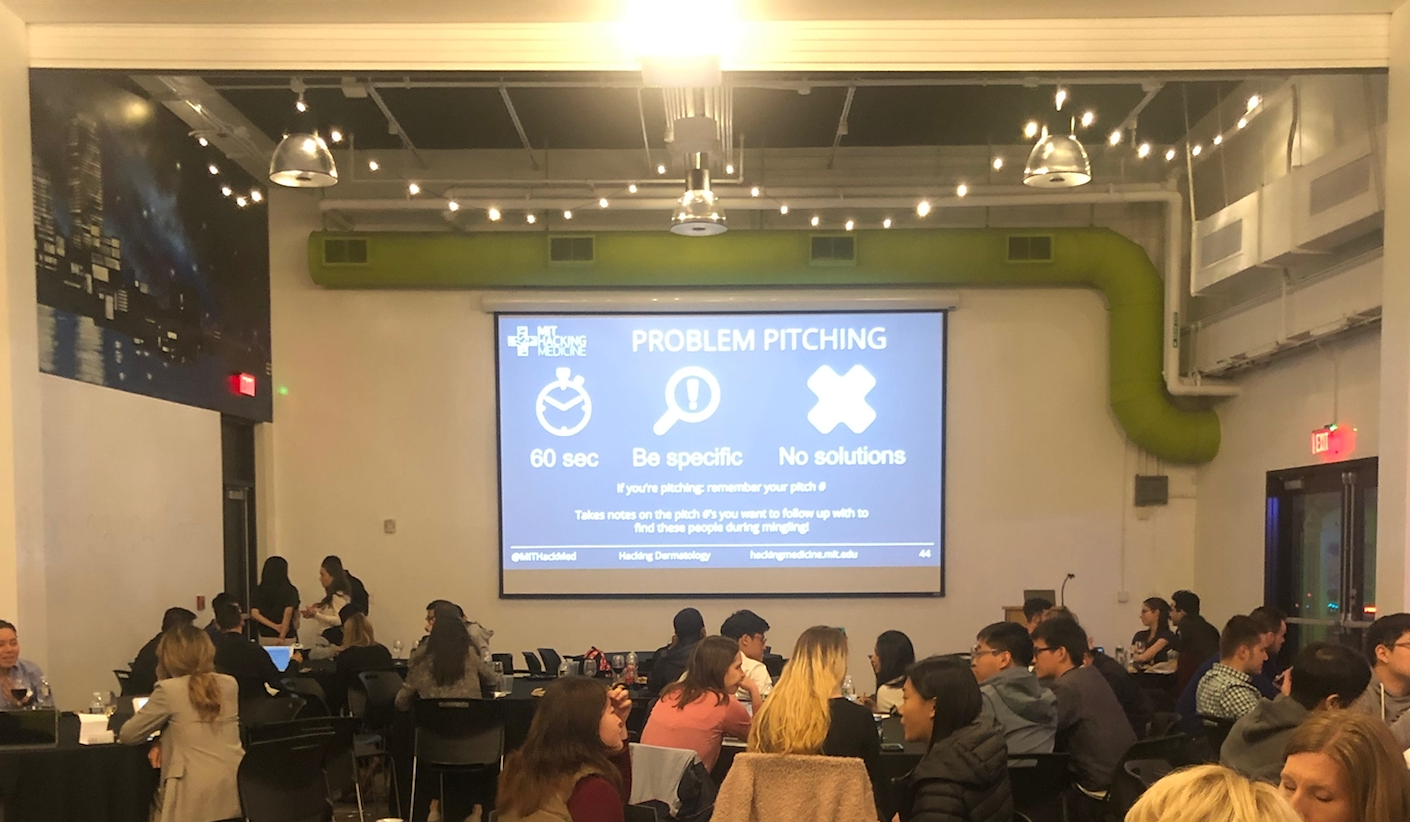- Acne
- Actinic Keratosis
- Aesthetics
- Alopecia
- Atopic Dermatitis
- Buy-and-Bill
- COVID-19
- Case-Based Roundtable
- Chronic Hand Eczema
- Chronic Spontaneous Urticaria
- Drug Watch
- Eczema
- General Dermatology
- Hidradenitis Suppurativa
- Melasma
- NP and PA
- Pediatric Dermatology
- Pigmentary Disorders
- Practice Management
- Precision Medicine and Biologics
- Prurigo Nodularis
- Psoriasis
- Psoriatic Arthritis
- Rare Disease
- Rosacea
- Skin Cancer
- Vitiligo
- Wound Care
Article
Hackathon winners explore precision medicine
Author(s):
By the end of a three-day weekend, five of the teams at Hacking Dermatology's 2019 Hackathon walked away with $5,000 each. Learn more about the collaboration that took place and the solutions each team developed to solve pressing problem areas in dermatology.

Hacking Dermatology’s 2019 Hackathon took place September 13-15 in Boston. By the end of the three-day weekend, five teams were awarded $5,000 each to continue working on their ideas for the next several months.
During the kickoff presentations on the first night, program coordinators explained the agenda: In one-minute intervals during the first evening, participants pitched dermatology-specific problems in healthcare. About 25 problem areas were pitched, ranging from how to address identifying eczema triggers over time to how to standardize data collection and improve documentation systems to how to improve point-ofcare fungal diagnosis.
RELATED: The case for hackathons in dermatology
The pitches were followed by time for participants to mix and connect with other participants to discuss each of the problems, identify the one specific problem they each would like to work on solving during the weekend, and to form teams around those problems. By mid-day on Saturday, 17 teams were formed. The teams spent the next day and a half “hacking” their problems to develop potential solutions that would benefit patients and healthcare providers, as well as the basis of a sustainable business model to market the solution.
On Sunday afternoon, teams had three minutes to present their problem, solution and business case to a panel of judges. The winning teams whose conceptual ideas are advancing into the next phase of the process include:
FLARE, which is going to look at developing a product that performs non-invasive, continuous skin monitoring for eczema patients.
RELIEF, which is designing a product to help identify environmental triggers of eczema flares to gather personalized insight that can inform treatment and management plans.
SKIN ON A CHIP, which is exploring the idea of embedding patient skin cells on a chip to test medication and allergen sensitivity.
RELATED: Read more about the winning teams
CURESORE, which is developing an at-home patient-monitoring tool that uses image standardization technology to track disease progression.
WARTPATCH, which is developing A painless microneedle-based immunotherapy delivery device for treating warts, especially in children.
Hacking Dermatology was launched in 2018 by founding partners LEO Science & Tech Hub of LEO Pharma, Advancing Innovation in Dermatology and MIT Hacking Medicine. It began out of the desire to build a community around dermatology that brings together individuals from different industries such as engineering, business and medicine, and to provide a framework and resources for individuals to think creatively around current problems that exist within the dermatology field, says Alex Costa, science lead, new product planning at LEO Pharma and a co-founder and start-up mentor for Hacking Dermatology.
Hacking Dermatology is a venue for stakeholders from different areas of the industry to think about the problems in dermatology, connect with like-minded people that complement their skillsets, and to move ideation down the product development and commercialization pathway, says William Ju, M.D., president, Advancing Innovation in Dermatology.
As a founding partner, Michael Sierra, vice president of the LEO Science & Tech Hub, Boston, says this event is about impacting people’s lives. Industry can play a vital role in partnering with public and private institutions to act as a catalyst to transform early-stage innovations and technologies into solutions that can improve quality of life for patients.
“I truly believe that our mission is to help patients, and one way to do that is through innovation. By coming together with these partners and supporting Hacking Dermatology, we are able to give back to the community and help to advance progress in treatment and care. My team and I believe in impacting patients’ lives, and that’s why we participate. I believe so firmly that it’s all about what we can give back,” he says.
The five winning teams will return in early 2020 to pitch the status of their business development, premarket research and protype products. Three teams will walk away with a larger prize to begin development of a product, and in mid- 2020, a final team will be granted a grand prize to build a product and a company.
“This is a very exciting meeting because our mission at Advancing Innovation in Dermatology is really to help build a future where people and organizations come together to help solve the most important problems in dermatology through product innovation. One important part of that, of course, is people and a next-generation of innovators,” says Dr. Ju.
For more information on Hacking Dermatology, visit www.hackingdermatology.com.
Newsletter
Like what you’re reading? Subscribe to Dermatology Times for weekly updates on therapies, innovations, and real-world practice tips.











